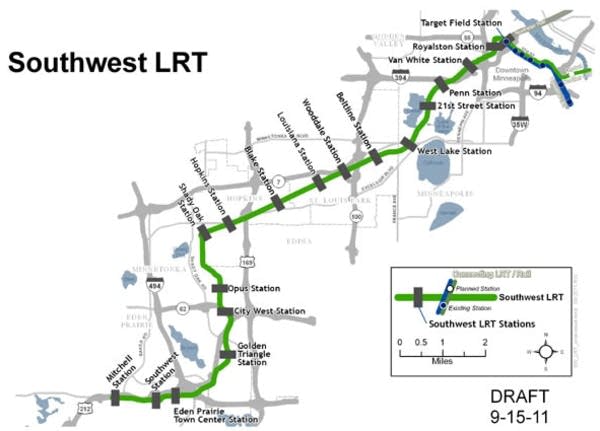Southwest light rail, decade into planning, keeps hitting resistance

This map shows the proposed route of the Southwest Light Rail Transit line.
Courtesy Metropolitan Council
Go Deeper.
Create an account or log in to save stories.
Like this?
Thanks for liking this story! We have added it to a list of your favorite stories.


